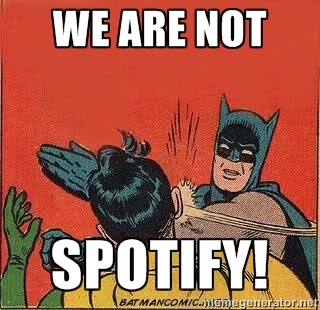 At Agile Israel conference, I was recruited to a “Hit The Experts” panel on engineering practices. Ok, I didn’t put too much of a fight.
At Agile Israel conference, I was recruited to a “Hit The Experts” panel on engineering practices. Ok, I didn’t put too much of a fight.
Most of the questions were not of the engineering nature, though. One of the questions went like this:
We’ve adapted the Spotify model, and now there’s no specialization, expectations from testers to write code, and from developers to tests are high, what do you do?
That’s a very big question, one that many are wrestling with. Expectations need to be negotiated. Testers code should be held to some standard (hopefully as high as expected from the programmers code). Developers should understand testability, and test their code.
That was what my original answer, anyway.
Instead, when it was my turn, I had a question to the audience instead.
“Does anyone here develop internet music application?”
No one raised their hand. So I continued:
“No? Well, maybe the Spotify model may not work for you.”
The room was so silent, you could here a pin drop.
One size does NOT fit all
The Spotify model is very attractive in its premise of organization culture and knowledge sharing, and like every successful model (scrum, anyone?) everyone wants to adapt it.
And like many models, it may not fit everyone. Hey, it didn’t even fit Spotify, because it took them years to get there, sometimes accidentally. and they continue to adapt it to their current state.
It fits them. It may not fit everyone.
Copying the ceremonies, roles, and names will not copy the culture. Sorry.
What you can do, is find out what model works for you. Continuously modify, improve it, experiment and learn.
You can bet the model you get will fit your organization better than any other model.
2 comments on “Copy-Paste Culture”